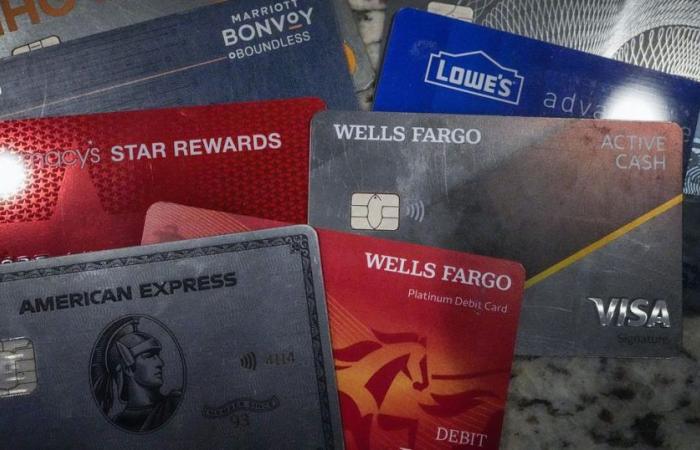If you are experiencing or are at risk of delinquency, experts recommend reaching out to a nonprofit credit counselor and negotiating directly with your creditors. Here’s what you should know:
WHAT SHOULD I DO IF I AM AT RISK OF DEFAULT?
Bruce McClary, senior vice president of the National Foundation for Credit Counseling, says anyone at risk of becoming delinquent should contact a nonprofit credit counselor as soon as possible, some of whom can be reached through Her organization. Counseling is free, and an impartial counselor can guide you to find a long-term solution.
Nonprofits can also help you create debt management plans that have lower interest rates, waive late fees and require a single monthly payment, McClary said. These plans may include maintenance fees, which vary, but are offset by the overall savings on debt. McClary urged borrowers to beware of scammers and for-profit debt consolidation companies, which often charge much higher fees than nonprofit organizations. The Consumer Financial Protection Bureau has a helpful breakdown comparing the two.
Martin Lynch, president of the American Financial Counseling Association, agrees.
“For many people, taking that first step and reaching out to an advisor is difficult,” Lynch said. She emphasized that, first of all, delinquent consumers should do their best to “relax” and then talk to the counselor about the situation they face as honestly as possible.
“You will be speaking to someone at no cost, who will listen to you while you describe your situation,” he said. “He can share his worries without being judged for falling into difficulties.”
WHAT ABOUT NEGOTIATING WITH CREDITORS?
Lynch and McClary urge borrowers to contact credit card companies directly to negotiate interest rates, fees, and long-term payment plans, emphasizing that it is in the best interest of these companies to have you pay before the debt is passed on. collection specialists.
“The best thing you can do is contact them, give an honest assessment of your ability to pay over time, and ask what alternatives they can offer you, both ‘official and unofficial,’” McClary said. This phrasing can give creditors a chance to be more flexible, he added.
McClary and other experts insist that most credit card companies and other lenders have programs available for difficult cases like these. These types of alternatives gained greater visibility during the COVID-19 pandemic, when more companies announced that struggling consumers could skip payments or defer them without penalties.
WHY IS DEFAULTS INCREASE?
The average annual interest rate on a new credit card is 24.71%, according to LendingTree, the highest since the company began tracking it in 2019. That’s partly because the Federal Reserve increased its benchmark interest rate to its highest level in 23 years to combat the highest inflation in the United States in four decades, which in June 2022 reached a maximum of 9.1%.
At the same time, aid implemented during the pandemic, such as stimulus payments, the child tax credit, increased unemployment benefits and a payment moratorium on student loans, have come to an end. Not all wage increases have kept pace with inflation, hitting lower-income consumers hardest, and rent increases have eroded savings some consumers may have accumulated during the early years of the pandemic.
Silvio Tavares, CEO of VantageScore, a credit scoring modeling and analysis company, says delinquencies have exceeded their pre-pandemic levels, and that renters are particularly vulnerable to falling behind on their payments.
“Younger, less prosperous people are experiencing problems,” he said. “And high interest rates are having consequences.”
Tavares said the most important thing a borrower can do is know their credit score and stay current on their payments to avoid paying additional interest on outstanding balances and debts. He warned consumers not to go overboard with “buy now, pay later” loans, which are increasingly available “at all checkout counters.”
HOW WORRYING IS THE INCREASE IN DEFAULTS?
Credit cards make up only about 6.5% of consumer debt, according to a report from Bank of America’s Global Research organization, but the increase in delinquencies appears to be outpacing the increase in income.
According to McClary, it’s also likely that a sizable group of consumers are paying the minimum balance on their debt and thus staying out of default for now, but are extremely financially stressed to pay everything they owe. If the economy worsens, that could push these consumers into serious defaults, she warned.
In addition to the increase in credit card delinquencies, retail spending in the United States stagnated in April. Walmart stated that its customers are spending more on necessities than on consumer discretionary goods. Starbucks lowered its sales expectations, and McDonald’s is offering more deals as people cut back on spending.
NULL
FOUNTAIN: AP






